
See the Film on PBS

Check your local listings
Most observers consider the Balfour Declaration and Mandate period of the 1920s as the origin of today’s Israeli-Palestinian conflict. Breaking new ground, 1913: SEEDS OF CONFLICT, a one-hour documentary directed by filmmaker Ben Loeterman, explores the divergent social forces growing in Palestine before World War I, when Arabs and Jews co-existed in harmony as Ottomans, each yearning for a land to call their own.

Synopsis
Government documents, newspaper accounts, and personal letters in five languages from the Turkish state archives provide new and fascinating insights into dramatic events that took place in Palestine just before the outbreak of World War I.
1913 Palestine is a multi-lingual, multi-cultural society. Muslims, Jews and Christians coexist in relative harmony and often gather together in the coffeehouses of Jerusalem. It is a time before Jerusalem’s Old City is segregated into separate ‘quarters’ for various groups. But after European Jewish migrants arrive, Ruhi al-Khalidi, Jerusalem’s representative to the Ottoman Parliament in
Istanbul, voices growing concerns about what he sees as their secret agenda to build a state. So does Albert Antebi, an Arab-speaking Sephardic Jew known as the Jewish “pasha,” who embraces economic and cultural Zionism, but fears the consequences of a Zionist land grab.
Meanwhile, Arthur Ruppin arrives from Germany to be the Zionist’s land agent and Khalil Sakakini returns from a trip to America filled with pride and optimism of a new Palestinian Arab identity. In 1913, growing tensions erupt into violence in the vineyard just outside Rehovot, leaving an Arab and Jew dead, and sowing the seeds for a century of conflict. Read more »
Interviews

Gur Alroey
Focuses on and has written extensively about the history of Jewish immigration.
Read more >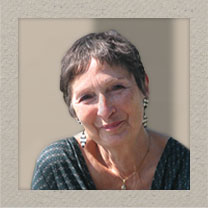
Elizabeth Antebi
Albert Antebi's daughter is a historian and writer in Paris.
Read more >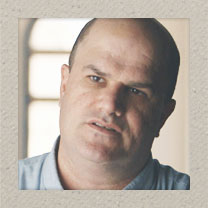
Yuval Ben-Bassat
Considers proto-Zionist-Arab encounters based on research at the Ottoman Archives in Istanbul.
Read more >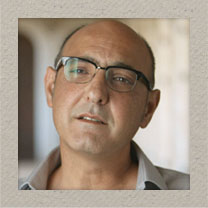
Etan Bloom
Focuses on Jewish cultural history and is the biographer of Arthur Ruppin.
Read more >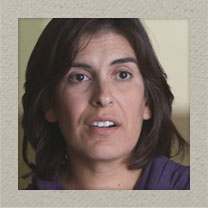
Michelle Campos
Historian who explores the late Ottoman Empire and social history of Palestine.
Read more >
Amy Dockser Marcus
Principal consultant to the film. Author of Jerusalem 1913: The Origins of the Arab-Israeli Conflict; former Jerusalem correspondent for The Wall Street Journal.
Read more >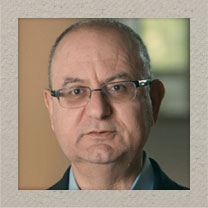
Beshara Doumani
Explores the cultural history of peasants, merchants, artisans and women in late Ottoman Palestine. Read more >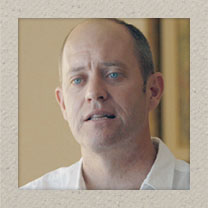
Louis Fishman
Specializes in current Turkish and Israeli-Palestinian affairs and during the late Ottoman period.
Read more >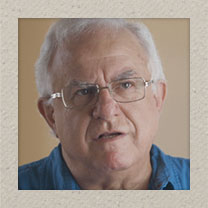
Yaakov Gross
Israeli film historian, archivist and documentary filmmaker.
Read more >
Abigail Jacobson
Looks at the social history of urban communities from late Ottoman Palestine to the British Mandate.
Read more >
Issam Nassar
Scholar of photography of the Middle East, and the history of Ottoman Jerusalem.
Read more >
Ariyeh Saposnik
Historian of Zionism and the construction of national identities and cultures.
Read more >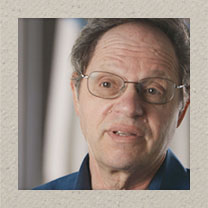
Gershon Shafir
Historical sociologist with a focus on nationalism, ethnicity and human rights.
Read more >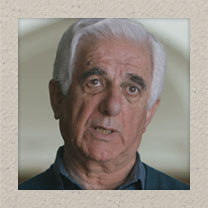
Salim Tamari
The “preeminent Palestinian historical sociologist” directs the Institute for Palestine Studies.
Read more >Historical Characters
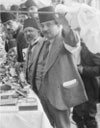

Albert Antebi was a Jew from Damascus who relocated to Jerusalem in 1896 to became the head of the Alliance Israélite Universelle. He was an educator, a philanthroper and a go-between the Jewish and Arab communities in Palestine.
Read more >Albert Antebi
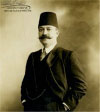

Ruhi Khalidi was a member of the notable Palestinian Khalidi family, a writer and teacher. He was the nephew of Yusuf Khalidi who had the letter exchange with Herzl in 1890. Following the Yung Turk Revolution in 1908, Ruhi was one of three elected representatives of Jerusalem in the Ottoman Parliament in Istanbul.
Read more > Ruhi Khalidi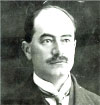

Arthur Ruppin was a Jewish German sociologist and statistician who relocated to Jaffa in 1907 to work for the World Zionist Organization. Ruppin headed the Palestine Office and was in charge of buying land for Jewish Settlement in Palestine.
Read more > Arthur Ruppin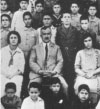

Khalil al-Sakakini was a Palestinian Orthodox Christian. He was the teacher of Wasif Jawhariyyeh among many others. He founded the Constitutional School based on humanist principles and introduced new educational methods. He was also an Arab nationalist who voiced concern over the growing Zionist activity in Palestine.
Read more > Khalil al-Sakakini
